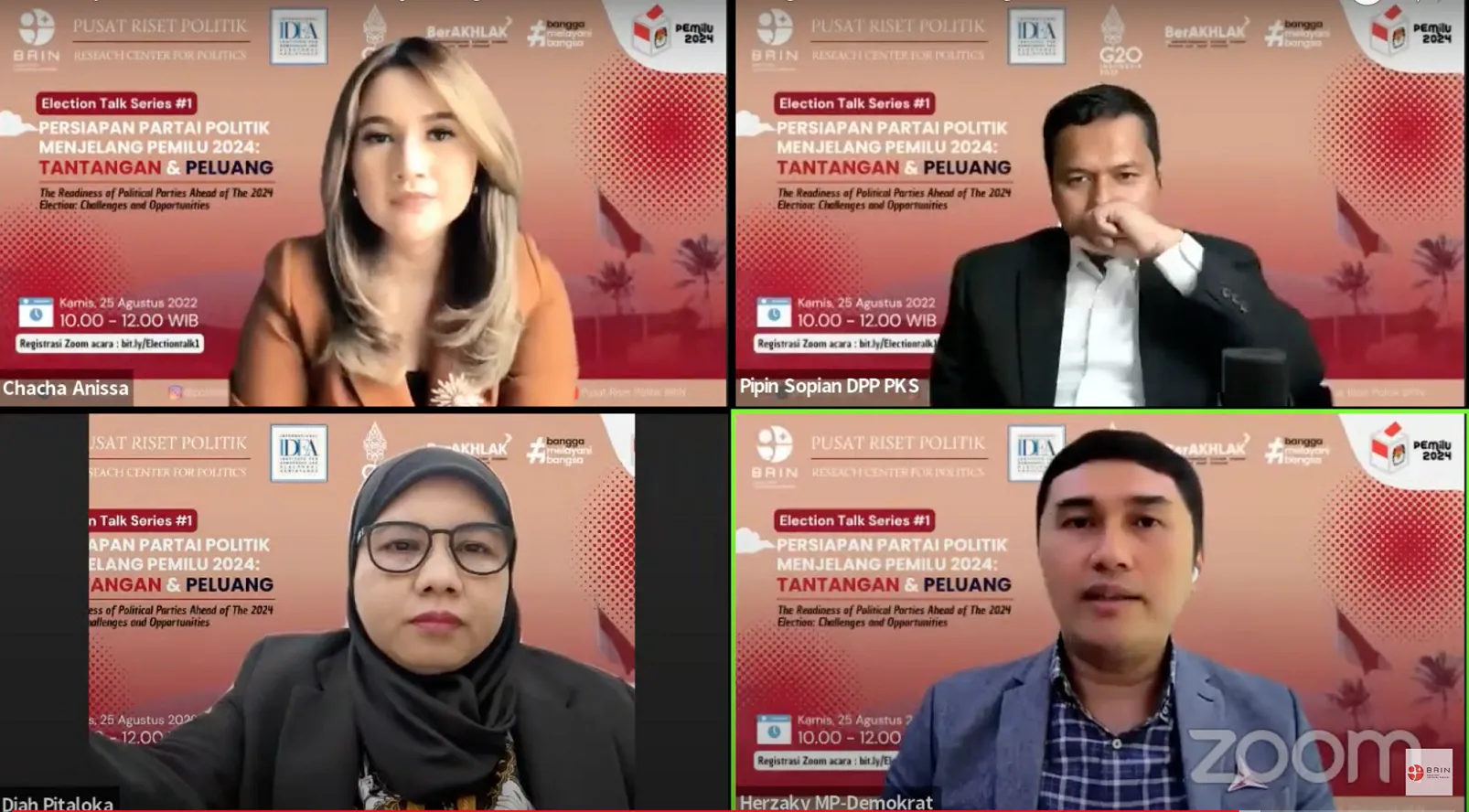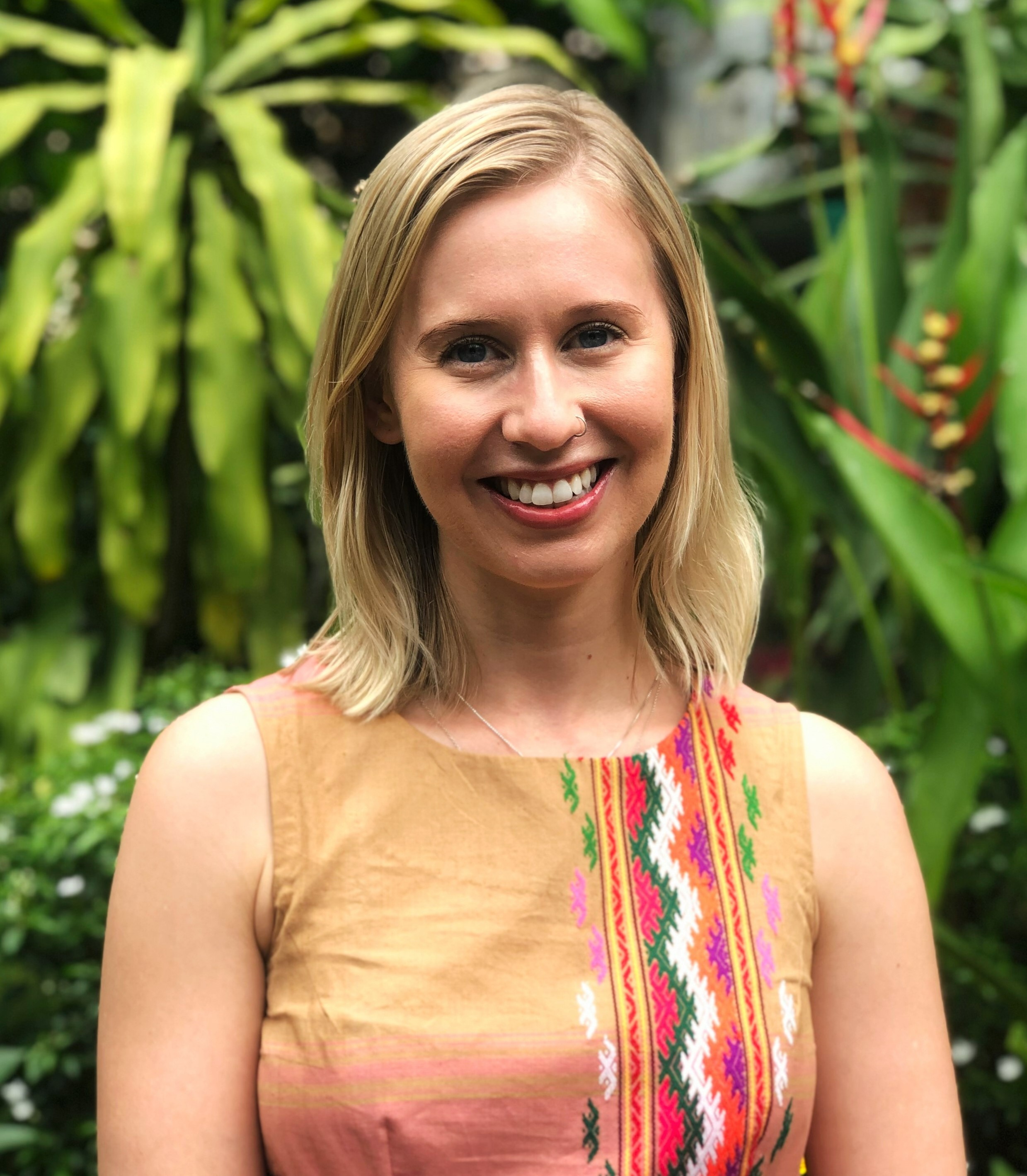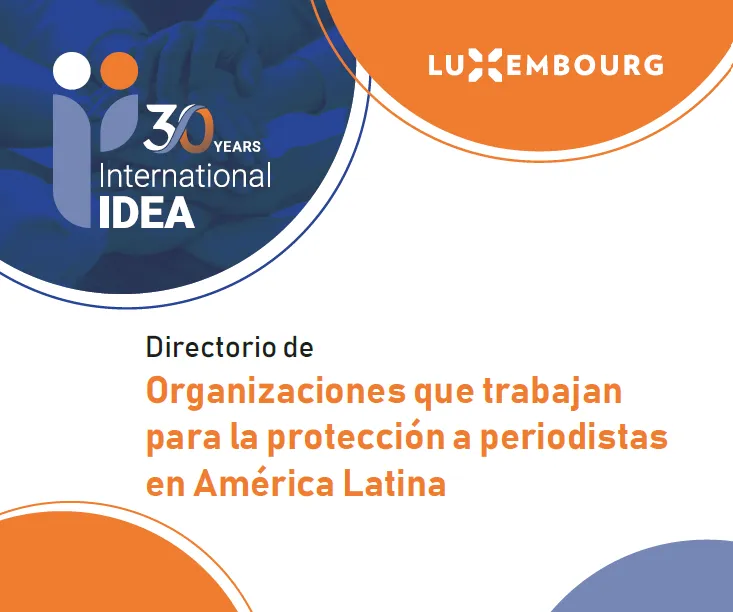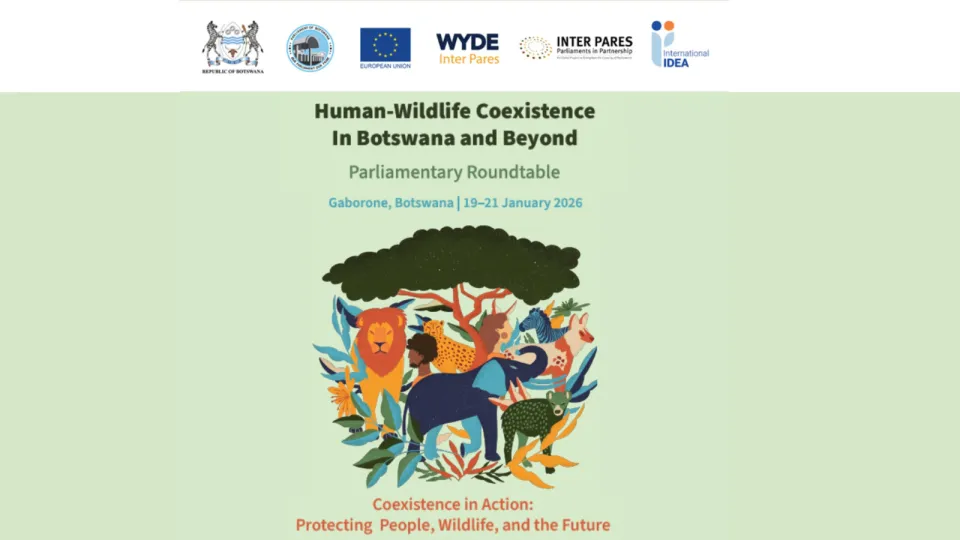Election Talk #1: With two years to go, are Indonesian parties election-ready?

Two years out from the next Indonesian election, preparations are well underway for political parties in one of the world’s most populous democracies. As a presidential representative democracy for more than 20 years, the country has upwards of 80 political parties. Despite this vibrant political environment, Indonesia’s democracy has shown signs of democratic backslides, notably in the areas of corruption and parliamentary effectiveness.
With campaigns looming, International IDEA and the Research Center for Politics, of Indonesia’s National Agency for Research and Innovation (BRIN), have convened a series of Election Talks, aimed at bringing together political party representatives, scholars and Indonesian voters. The first of these discussions tackled three of the biggest issues in the election lead up: the readiness of parties to face the elections, the internal challenges faced by participating political parties and the issue of money in politics.
Highlighting several “critical issues” in her opening remarks, Leena Rikkilä Tamang, International IDEA’s Director for the Asia and the Pacific Region, said parties must come up with solutions to these questions, and that, “it is also the responsibility of political parties to ensure Indonesia stops further declines, and corrects these negative trends,” she said.
Touching on Rikkilä Tamang’s comments in his keynote speech, Professor Firman Noor said the upcoming election is an “opportunity” to remedy the country’s democracy.
“Research shows that problems such as political dynasties and [the influence of] money in politics are stark dangers. These issues are known to political parties, and political parties should respect fair internal party democratic processes and strengthen the merit system,” he said, referencing ongoing concerns in Indonesia regarding the entrenched power of family dynasties in Indonesia.
In contrast, Nurul Arifin from the Golkar Party spoke out against the assumption that political dynasties are inherently problematic, telling the audience that the question is their capability, rather than their background.
“Political dynasties are not necessarily a bad thing. If they are competent, why not? In Japan, the Liberal Democratic Party is full of second or third generation politicians. What I oppose, is if they are given ‘free passes,’” she said, adding that she, too, once thought the presence of dynasties was a deficit in the political system.
All panellists were aligned in the call for open recruitment for legislative candidates, but Herzaky Mahendra Putra of Demokrat Party went further—highlighting the importance of open recruitment in the party base itself.
“We often talk about the legislative candidates, but we cannot only look at them if considering the regeneration of leadership [roles], but rather seeing how they have been recruited as party executives prior to becoming candidates … our recruitment is very open, you don’t have to be related to anyone,” he said.
“We have bylaws that regulate [recruitment], so that [people from dynasties] cannot come here and immediately become chairperson—all have to pass through a legitimate process,” he said.
Pipin Sopian from Prosperous Justice Party (PKS) pointed out another risk of money in politics: when working class candidates can’t afford to stand for election, power centres in the hands of small number of well-connected people.
“Due to the high cost of politics, the oligarchy becomes stronger,” he said, calling for the cost of standing for elections to be minimised to ensure greater inclusivity.
Watch the panel discussion, in Bahasa Indonesia, on YouTube.




